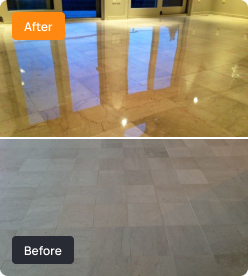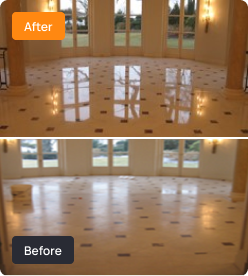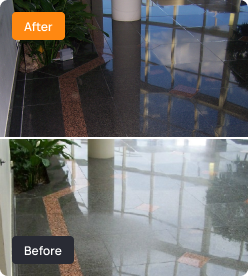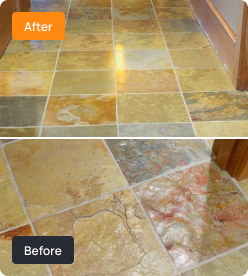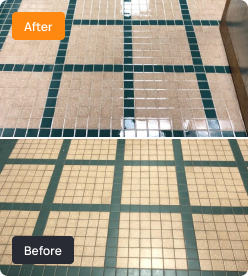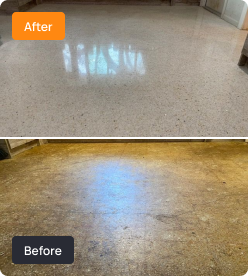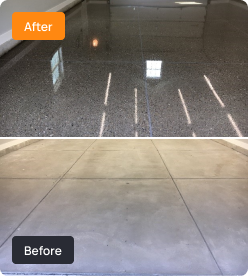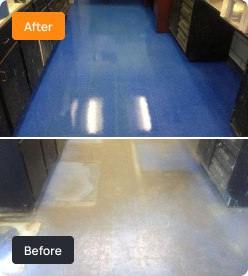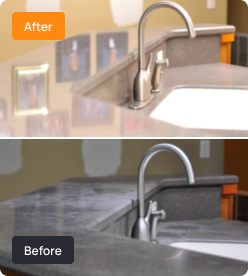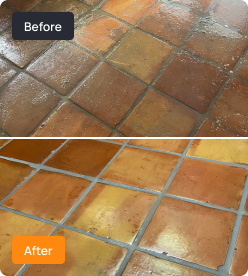Using Vinegar in Your Shower? Here’s What You’re Missing Out On!
In almost every kitchen cabinet across America, nestled between the olive oil and the salt shaker, you’ll find a bottle of vinegar. A staple for salads, it has also become the darling of many a DIY cleaning. Blogs, videos, and social media posts extol its virtues as the one-stop solution for all cleaning woes. It’s […]
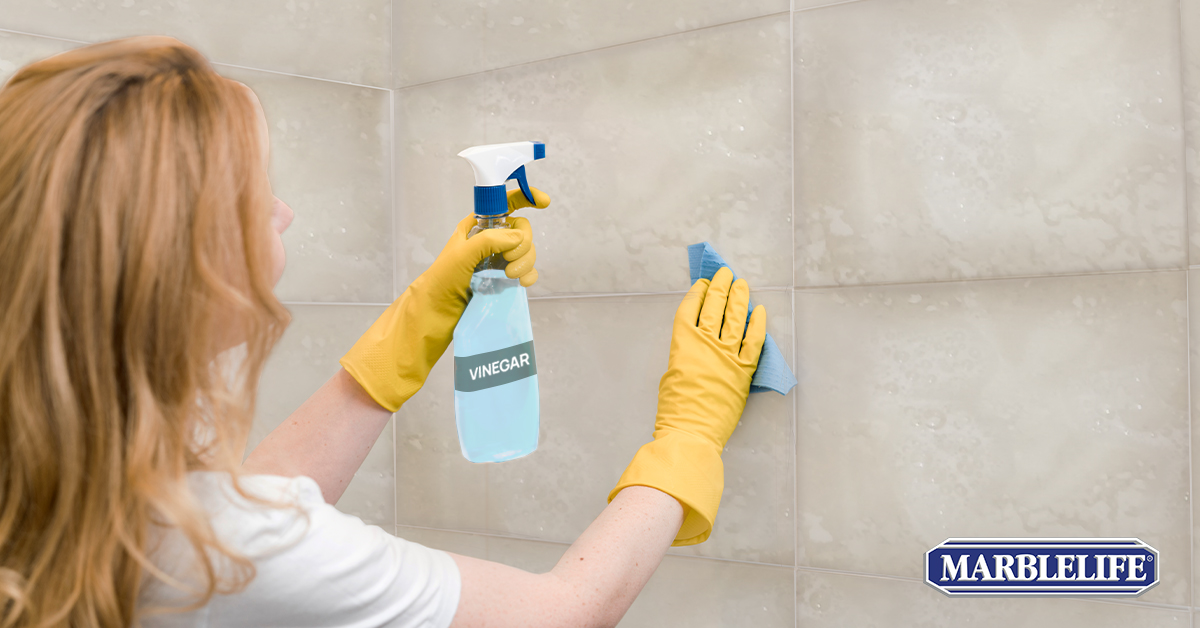

In almost every kitchen cabinet across America, nestled between the olive oil and the salt shaker, you’ll find a bottle of vinegar.
A staple for salads, it has also become the darling of many a DIY cleaning. Blogs, videos, and social media posts extol its virtues as the one-stop solution for all cleaning woes. It’s almost magical, isn’t it?
A splash here to brighten up your windows, a dash there to disinfect your countertops.
However, before you reach for that vinegar bottle to clean your shower, it’s important to pause and consider if it’s the right choice.
Your decision could either save you money, lead to a costly $1,000 restoration service, or even push you toward a full remodel if things don’t turn out as planned.
This moment might soon be followed by a regretful ‘Why did I do that?’ To avoid such regret, read our blog post to learn why vinegar might not be the best option.
Shower Surfaces vs. Vinegar
Vinegar is not merely a condiment for your salad; it’s a potent solution of about 5% acetic acid. This acid lends vinegar its powerful cleaning abilities. However, this same attribute can also spell trouble for certain surfaces.
Natural Stone Surfaces
Natural stones, like marble and travertine, predominantly contain calcium carbonate. This material can be dissolved by acid…like vinegar.
The Vinegar Effect
When vinegar comes into contact with calcium carbonate, it dissolves the surface, resulting in etching. This damage appears as tiny spots, spatter marks, dull patches, and a diminished sheen of the stone.
The darker the stone’s color, the more noticeable the damage. Etched stone turns white, which is immediately visible on dark showers but may take time to notice on lighter surfaces. Etching can seem to disappear when wet due to light reflecting off the water in the newly created depressions, only to reappear upon drying.
Tile Surfaces
There are many different types of tiles available in the market. We advise against using vinegar to clean any tile.
Ceramic Tiles
These are made from clay and minerals, protected by a glaze. The glaze offers some defense against vinegar, but the main concern is with the grout.
Grout is porous and usually sealed to resist stains. However, acid can degrade these silicone-based sealants, causing them to break down and wash away. Contrary to popular belief, this can happen with just one application of vinegar.
Once the sealant is removed, dirt can penetrate the grout, leading to discoloration. This dirt and mold are no longer just on the surface but embedded in the grout, requiring specialty cleaners like MARBLELIFE MAXOUT DEEP CLEANING GROUT CLEANER and resealing.
Porcelain Tiles
Made from high-quality clay and fired at high temperatures, porcelain is more resistant to vinegar. However, the grout between porcelain tiles is still vulnerable, just like with ceramic tiles.
Acrylic and Fiberglass Surfaces
These materials are less vulnerable to the damaging effects of vinegar on tile and grout. This resistance can often lead to overconfidence in using vinegar on other surfaces, where it can cause rapid and costly damage, as previously mentioned.
To sum up, while vinegar has its cleaning advantages, it’s essential to consider its chemical interactions with various surfaces. Sometimes, what cleans one material might harm another.
The Dual Nature of Vinegar
Building on our understanding of vinegar’s chemistry, it’s clear that while it’s a potent ally in battling dirt and grime, it can also be a formidable foe to certain surfaces in our homes.
Acidic Nature
Vinegar is primarily composed of acetic acid, typically with a concentration of around 5%. This acid provides vinegar with its cleaning properties, enabling it to break down mineral deposits, dirt, and grease.
However, the same attribute can also harm certain materials, particularly those sensitive to acidic reactions.
A fun fact is that hard water stains, which vinegar is good at dissolving, are made up of the same calcium carbonate chemistry that makes materials such as marble, travertine, and limestone susceptible to vinegar damage.
White Vinegar vs. Regular Vinegar
While they’re often used interchangeably in cleaning contexts, there are distinctions. Both types are acidic, but white vinegar is usually more purified and has a clearer appearance.
This makes it a favorite for cleaning as it doesn’t leave color residues. However, in terms of acidity and potential risks to surfaces, both are quite similar.
Molecular Interactions
On a molecular level, vinegar’s acetic acid dissolves mineral deposits and breaks down some oils, making it effective against limescale and soap scum.
Although soap scum and limescale can look alike in their early stages, they are fundamentally different, and their optimal solutions are different as well.
If you suspect that you have soap scum, which you likely do if you shower and use soap, then MARBLELIFE SOAP AND SCUM REMOVER is your best bet.
This product cuts through soap scum like a knife through butter and is so effective that you can hear and feel it working and know when its task is complete.
It is engineered to be harder than soap but softer than the underlying glass or tile surface, so it will not scratch or rub these surfaces. If you have hard water/limescale deposits after removing the soap scum surface, a simple razor blade can be used to quickly shave them away.
Unseen Risks of DIY Cleaning
While homemade cleaning solutions, especially vinegar, can offer quick results, weighing these against potential longer-term issues is crucial.
Surface Wear
Repeated use of vinegar over time can gradually dull the shine of surfaces, make them rougher, or even weaken them.
What may initially seem like a minor alteration can become increasingly noticeable and unappealing. This effect is immediate, but it might take a homeowner several applications to observe the diminishing shine.
Rest assured, the damage occurs from the very first application.
The severity of the damage can range from a loss of gloss to a pitted, rough surface if the exposure is prolonged.
Once a surface is damaged, it will require re-polishing, leading to a service call that is significantly more expensive than any savings from using vinegar as a cleaner.
We strongly advise contacting MARBLELIFE for a FREE CONSULTATION before attempting to clean with our products. This is like our version of a ‘cleaning hotline,’ where we can save you time, money, and frustration by providing tailored advice for your cleaning challenges.
Cost Over Time
Although using DIY solutions may save you money initially, the expenses of fixing or replacing damaged areas can quickly surpass these savings.
If you are looking for eco-friendly solutions, it’s important to consider the non-green cost of repairing the damage caused by such errors.
This can range from replacement to restoration, which involves mobilizing service people and burning energy to correct the mistake. It’s worth taking the time to find a suitable cleaner to avoid these costs.
Depending on your situation, MARBLELIFE can provide you with DIY solutions, surface-safe cleaners, or surface-saving services to help you achieve your cleaning goals while being environmentally responsible.
Consistency Challenges
Achieving consistent strength or mixing with DIY solutions can be challenging.
Using a stronger vinegar mix than before may cause more harm than a milder solution.
However, each application results in a consistent chemical reaction and damage, with the only variable being the duration and extent of the damage.
Health & Safety
When we think of cleaning, our primary focus is often on the surfaces. However, our products can have implications beyond just the cleanliness or potential damage to our showers and tiles.
Inhalation Concerns
Using concentrated vinegar in confined spaces can cause strong odors and respiratory discomfort without proper ventilation.
Skin Contact
Direct contact with concentrated vinegar can dry out the skin or cause mild irritation. It’s always advisable to use gloves if opting for DIY cleaning solutions that involve vinegar.
Environmental Impact
While vinegar is biodegradable and generally considered environmentally friendly, the frequent use and disposal of large quantities can affect water pH levels in local water systems.
Safety of Professional Products
Contrary to popular belief, many professional cleaning products are formulated with user safety in mind. They undergo rigorous testing and often come with detailed instructions to ensure effective cleaning and user safety.
Formulated Products
Cleaning products are formulated with different materials that serve specific purposes depending on the surface they are intended to clean.
However, some products are created with the marketer in mind more than the client.
While cleaning should simply be the safe and efficient removal of dirt and oil from a surface, some products include unnecessary waxes and oils just to give the surface a shiny appearance. In reality, waxes and oils have no place in a cleaner.
Although vinegar has none of these unnecessary cleaner ingredients, it also lacks the additives necessary to break water tension, which is needed to allow a cleaner to enter and flush out grout lines.
This makes vinegar unique in its ability to contribute to open grout pores, but it is resistant to allowing them to be flushed out later. As such, vinegar is best used on salads and not on floors and counters.
MARBLELIFE’s Answer to Shower Challenges
For over thirty years, our team at MARBLELIFE has been dedicated to creating products and developing solutions for homeowners’ shower challenges.
We have gained valuable insights from thousands of service calls, which helps us understand the complexities of surface care. Everyone wants a clean and healthy surface; that is why we provide a scientific and holistic approach to address every barrier to cleaning.
Our solutions are formulated, optimized, and field-tested to ensure they are efficient and effective while also being safe for both the surface and the people using it. With our approach, you can have a shower that is easy to clean and maintains its beauty for years to come.
Facing Soap Scum and Hard Water Spots?
We recommend you use MARBLELIFE Soap Scum Remover. Our product removes soap scum from sensitive surfaces such as glass, metal, or plastic without causing any scratches. It is engineered to be harder than soap but softer than your shower and tub materials. This means that it can easily cut through soap scum without damaging the surface.
Facing Hard Water Spots?
Hard water stains can be easily removed without chemicals using a razor blade, preventing surface or seal damage. It’s important to keep the angle of attack low to avoid scratching the surface.
Seeking Shine and Protection for Your Tiles and Natural Stone?
MARBLELIFE Tile & Grout Cleaner is an effective solution to clean your surfaces. Its InterCare technology easily removes dirt and oil, leaving a streak-free shine that enhances the natural beauty of your tiles without harming the grout. The formula is free of unnecessary waxes and oils that can lead to build-up and costly professional cleaning services.
Need Professional Intervention?
Even if you’ve already used vinegar or other harmful substances, don’t panic! We can still help you restore your surfaces and guide you on the best cleaners and cleaning strategies to use in the future.
Our consultations are free, and the resulting savings in time, money, and frustration are worth making a call.
Our experts use specialized techniques to address deep-set issues or rejuvenate aging surfaces, reviving the original allure of your tiles and grout.
The most common issue with tile and grout is staining. MARBLELIFE Grout Sealer can reseal or even change the color of your grout.
This is done in a manner that provides an acid-resistant surface, making it truly better than new.
The Wisdom in Choosing Professional Care
- Products are specifically made for individual materials, ensuring optimal care.
- DIY or generic solutions might work short-term but can lead to long-term, sometimes irreversible, damages.
- Professional products guarantee consistent, high-quality results with each application.
- Although there might be a higher upfront cost, professional products can result in long-term savings by reducing potential damage and prolonging surface life.
Experience Excellence in Surface Care
We at MARBLELIFE offer premium quality and expert solutions through our products and services. We have become North America’s largest stone restoration business by providing quality work, solutions, and products. Our focus is on maintaining the cleanliness and beauty of surfaces, and we achieve this through our team of quality people.


